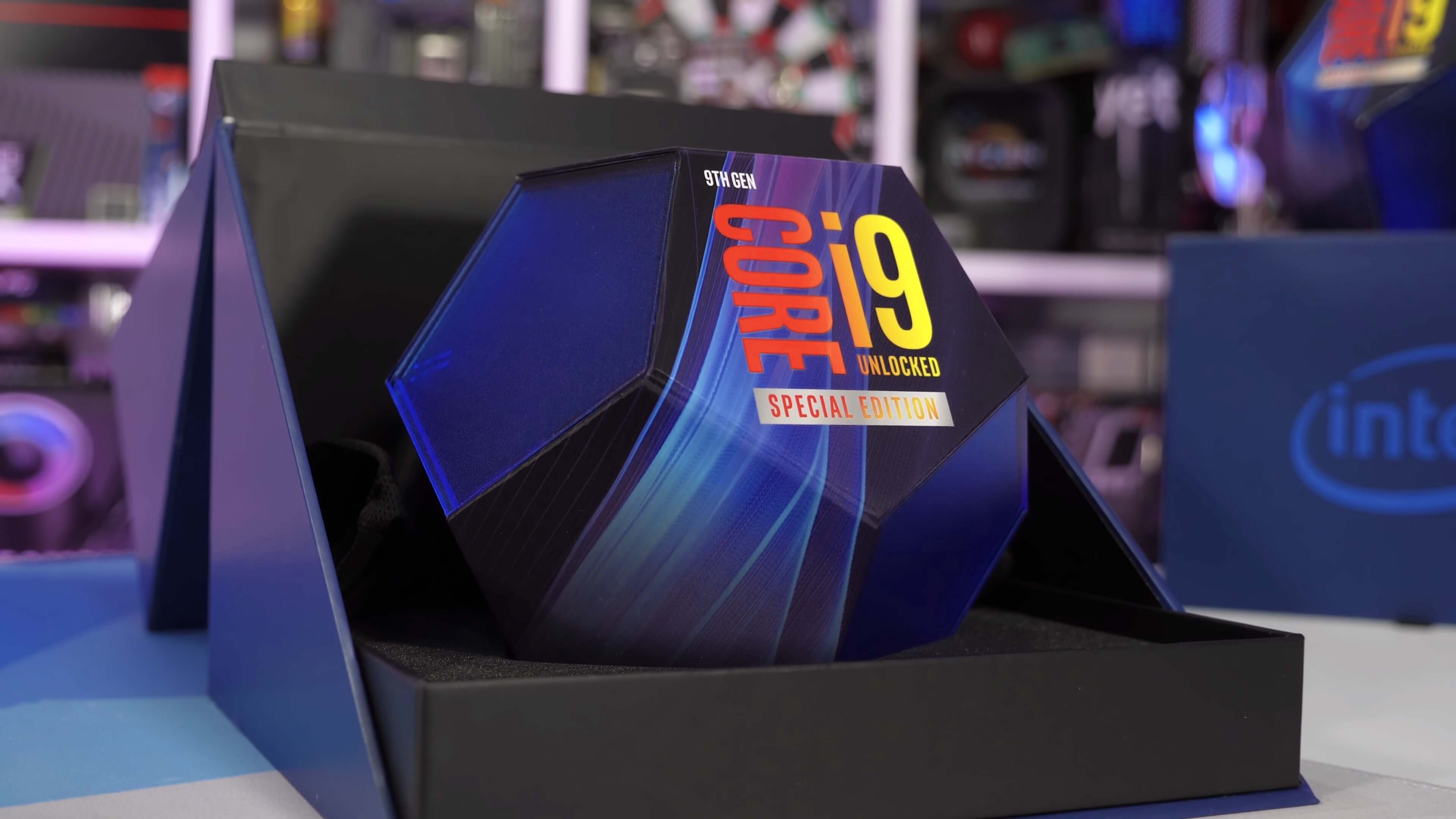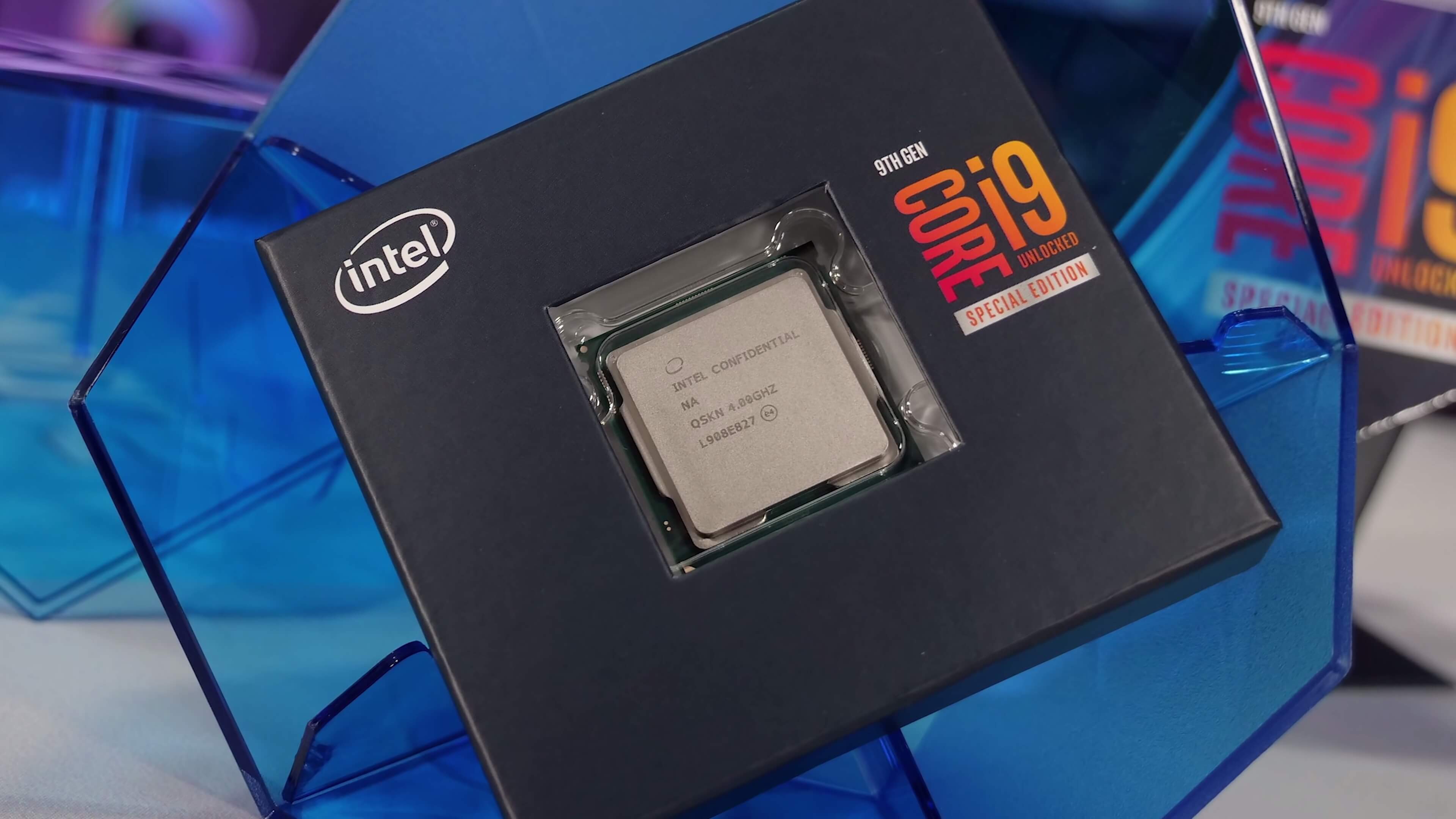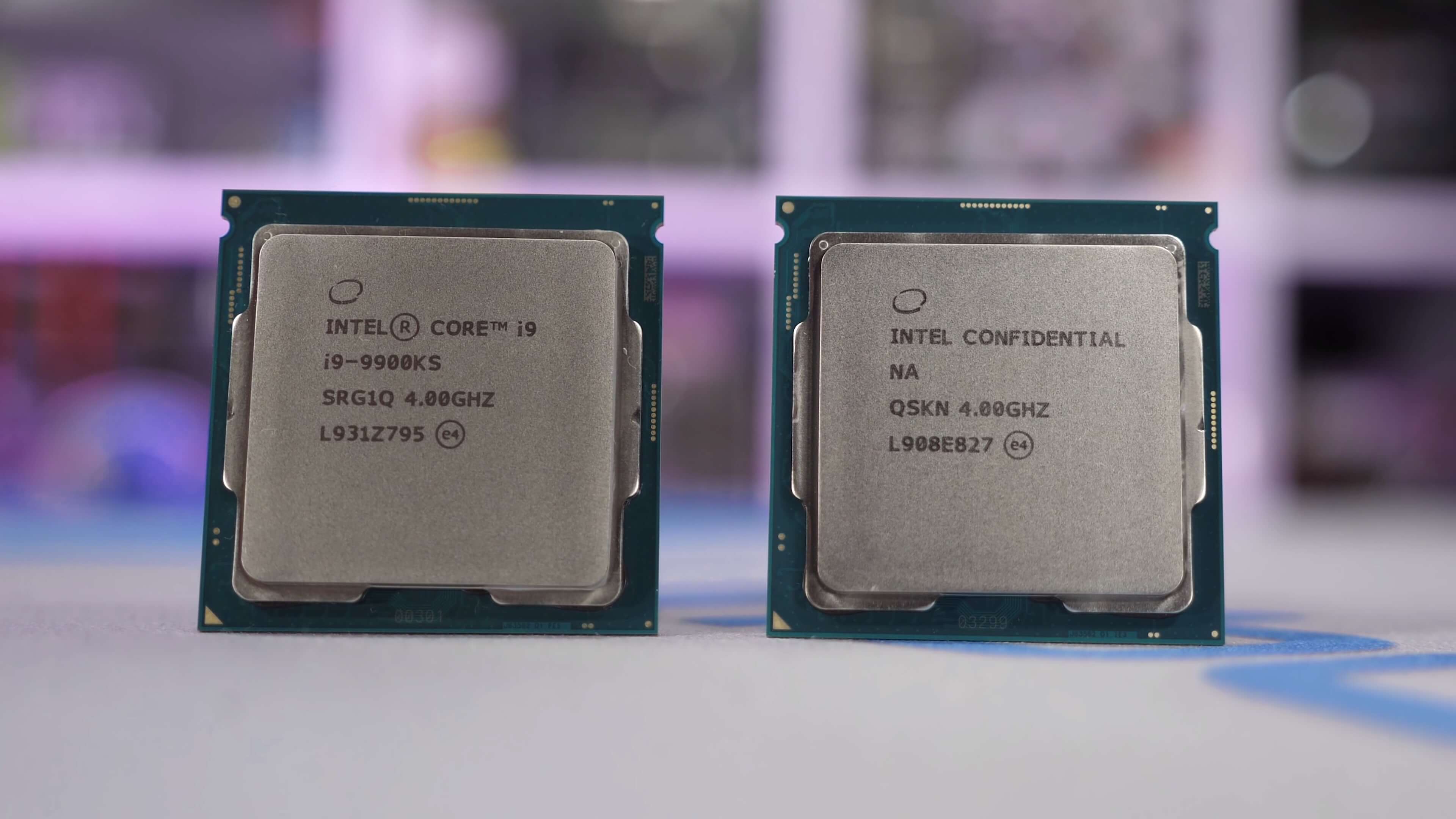Intel launched today the "new" Core i9-9900KS processor which appears to be a pointless release, similar to the Core i7-8086K that we never bothered to look at. Intel says this new processor delivers up to a 5.0 GHz all-core turbo frequency. It's a limited special edition set to become available starting today for $513.
Translation: this is just a 9900K with MCE enabled. Intel has raised the TDP to 127 watts as the base clock has increased to 4 GHz, but you'll require a good cooler to dissipate well over 200 watts if you hope to achieve maximum performance at reasonable temperatures.
Also, because this is a 'limited edition' processor, the warranty has been slashed from the standard 3 years, to just 12 months. So you're looking at paying ~5% more for a CPU that's going to be around 6% faster out of the box, or no faster if you had already enabled MCE. Besides the factory overclock that most motherboards were already performing, there appears to be nothing new here.
Before we get to the benchmarks, a few quick notes on the test system. For testing 8th and 9th gen Core processors we used the Gigabyte Z390 Aorus Ultra which has been flashed to the latest F9 BIOS revision which features Gigabyte's overhauled BIOS design, it looks good and works well.
For cooling we're using the new Aorus Liquid 360, and while we've yet to do any real comparisons with other coolers, it did a good job of cooling the 9900KS.
Something of note, the 9900KS we tested ran at an all-core clock frequency of 5.1 GHz on the Aorus Ultra, not the up to 5 GHz it's advertised to run at. This was the stock configuration on the Aorus Ultra using the latest BIOS, and enabling MCE changed nothing. The reason for the extra 100 MHz is that the board forced a base clock frequency of 102 MHz. Given more ample time we'll check out stock behavior of other Z390 motherboards with the 9900KS, but for now we'll run with this.
Benchmarks
Starting with Cinebench R20, we have the multi-core test where the 9900KS was 8% faster than the 9900K. That meant it also overtook the Ryzen 7 3800X by 6% margin, crucially though, it was a whopping 26% slower than the Ryzen 9 3900X.
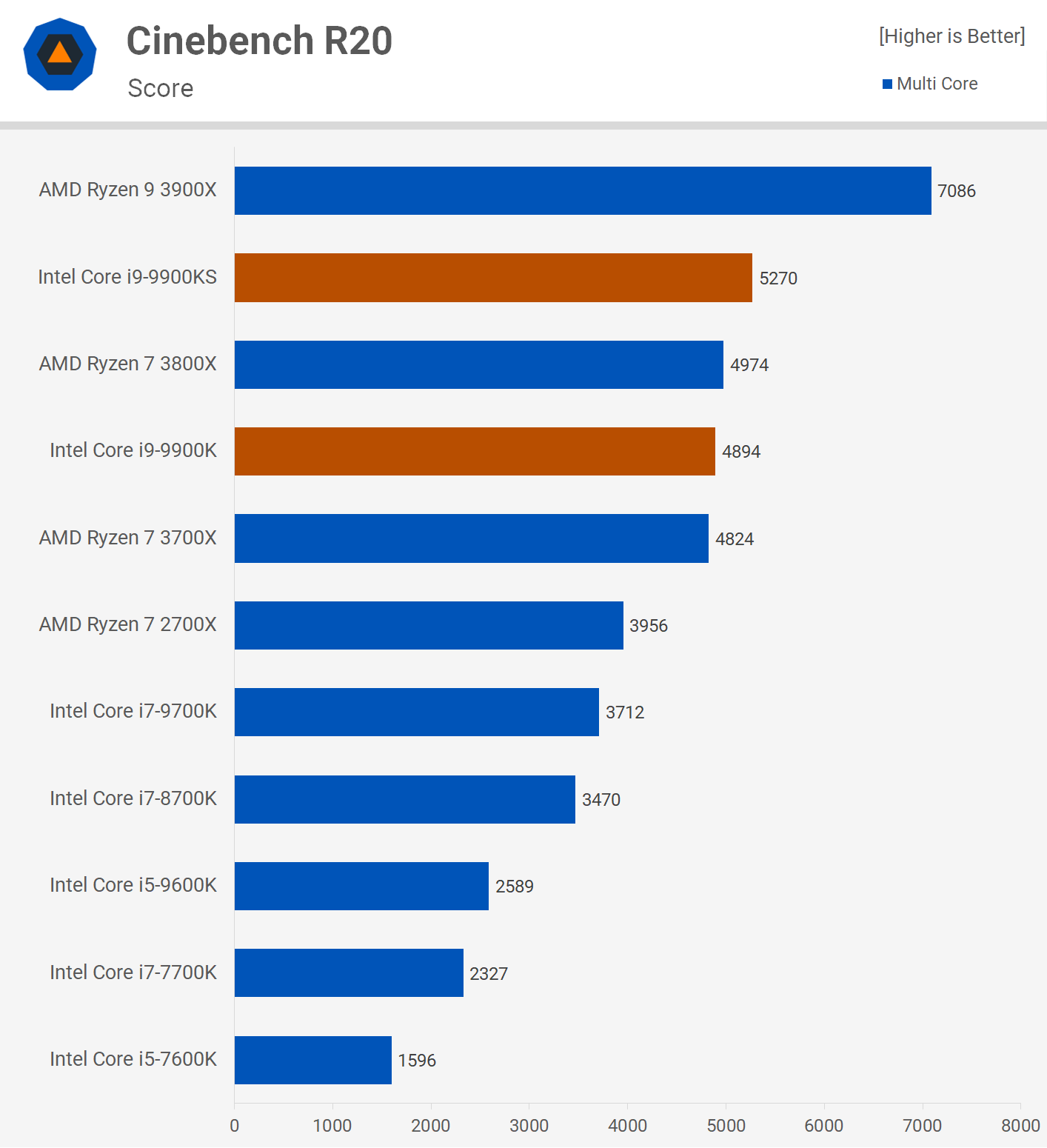
For lightly threaded workloads the performance difference is much smaller, just a 3% improvement in the Cinebench R20 single core test.
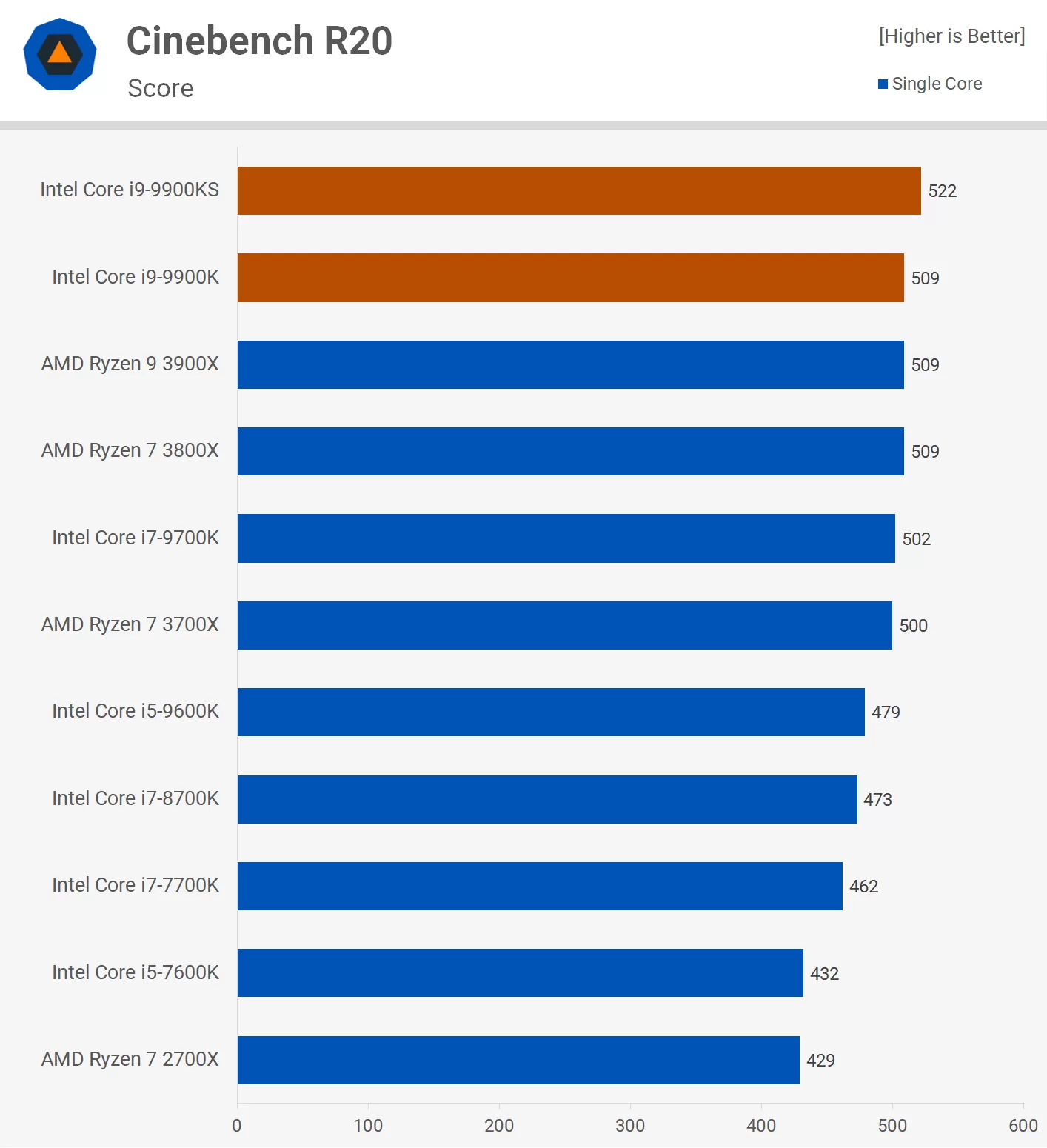
We see a mere 1% performance improvement over the 9900K when testing with WinRAR. Still that makes the 9900KS the fastest mainstream platform desktop CPU, at least until the 3950X is released next month.
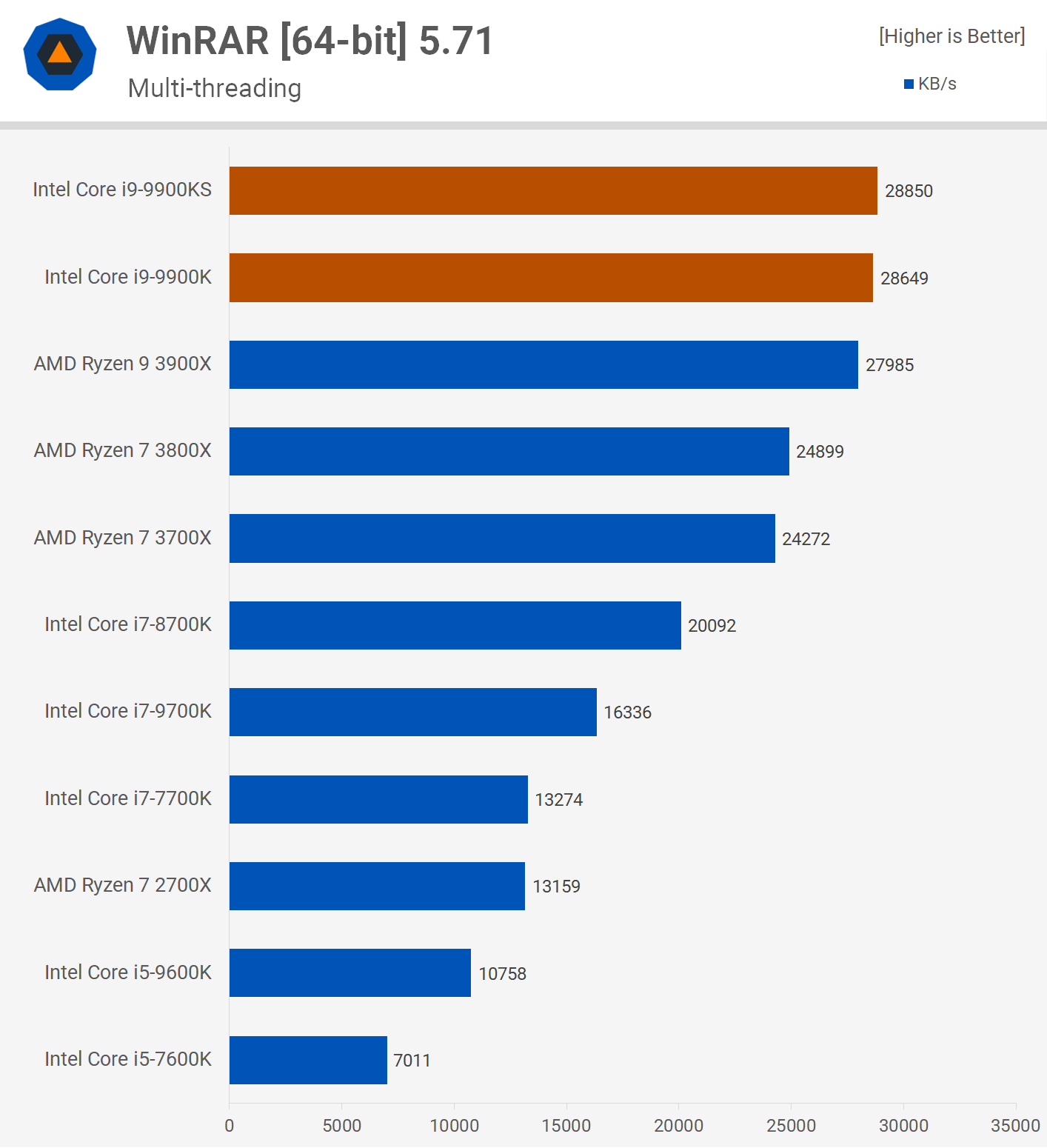
We see another insignificant performance gain for the 7-zip compression test. Though when measuring performance using the decompression test we did find that the 9900KS was 7% faster than the original 9900K, though that still makes it 5% slower than the 3800X.
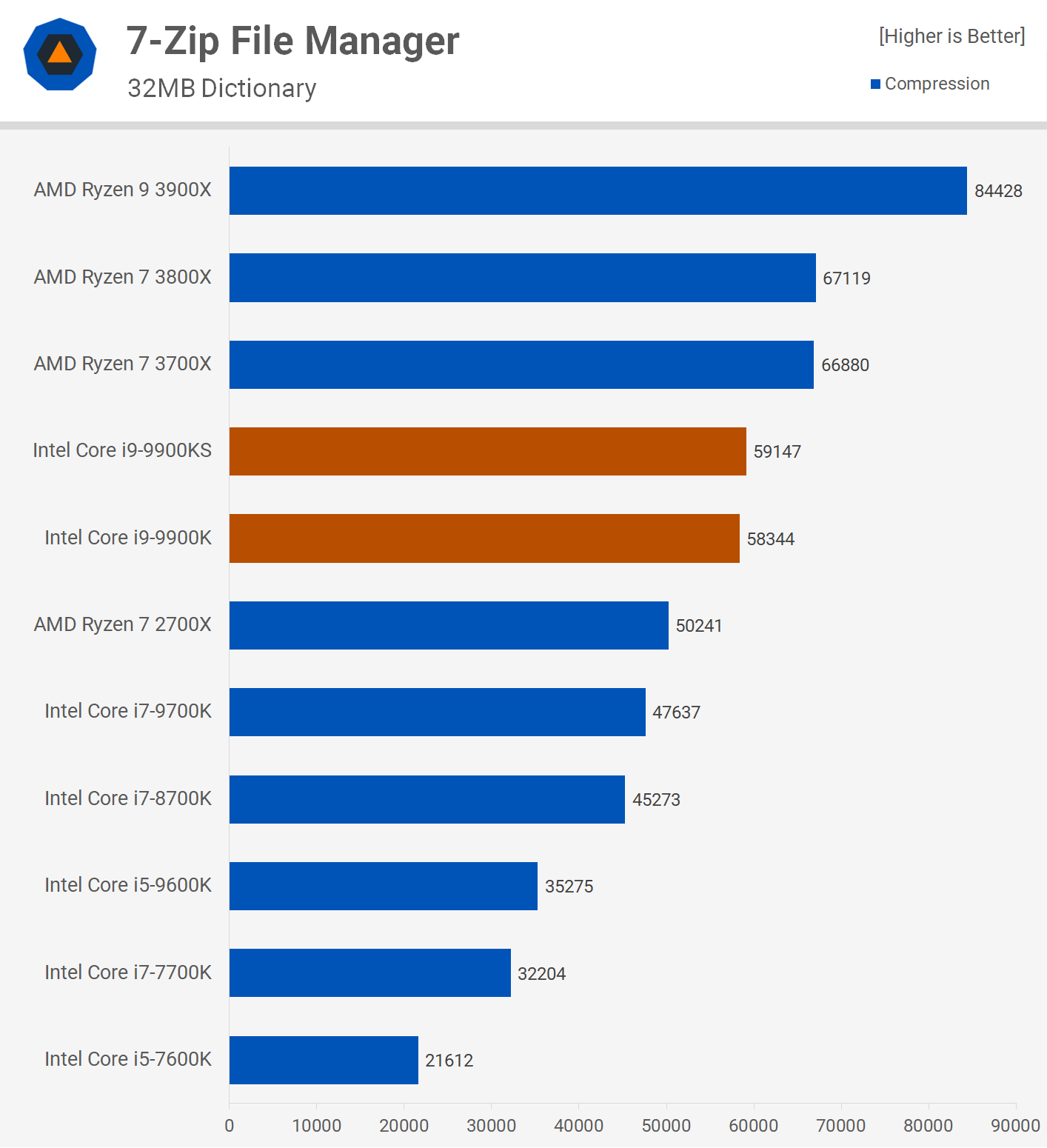
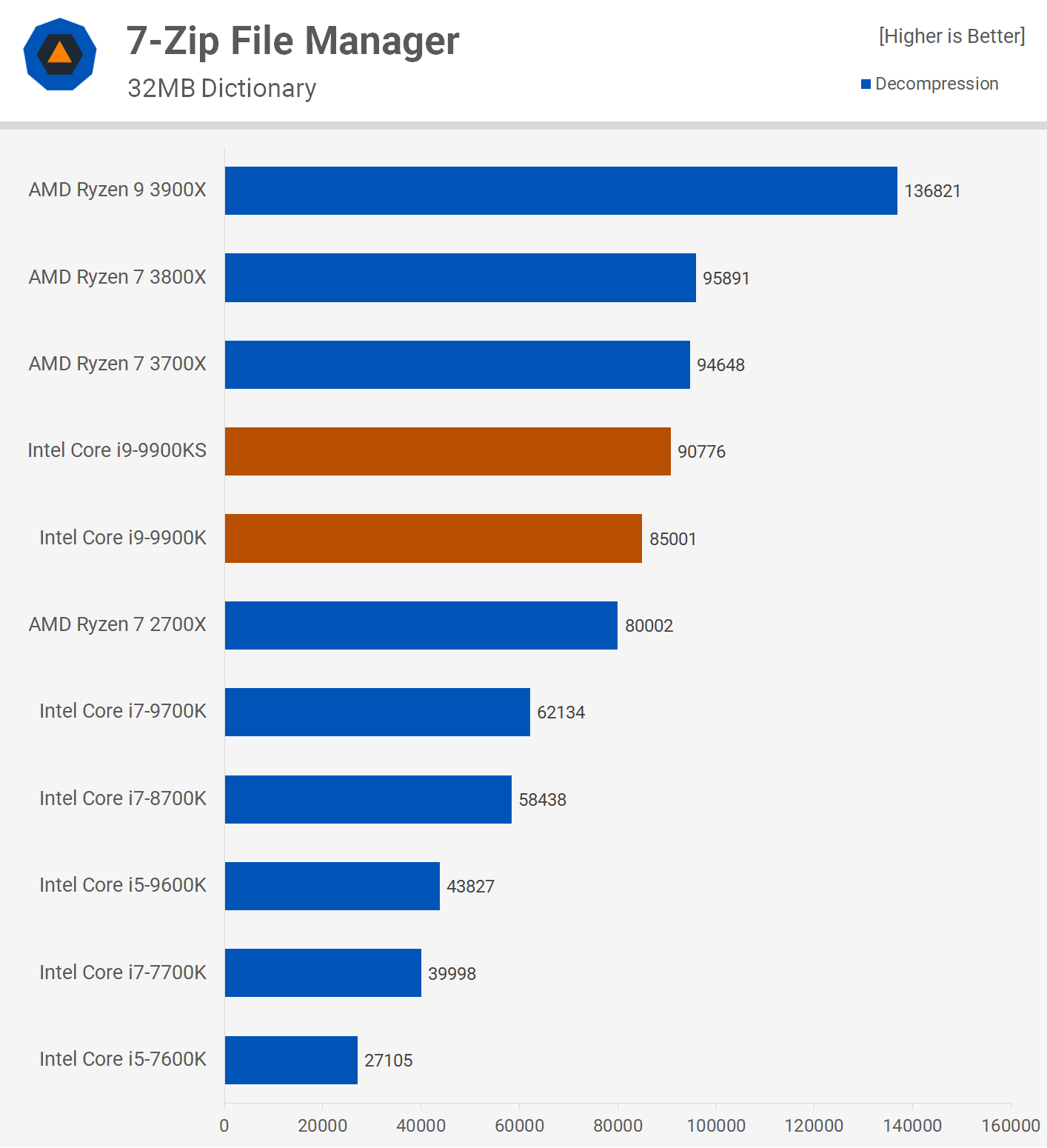
We see a 6% reduction in render time when using Premiere Pro, this allowed the 9900KS to match the 3700X, but still took 13% longer than the 3900X.
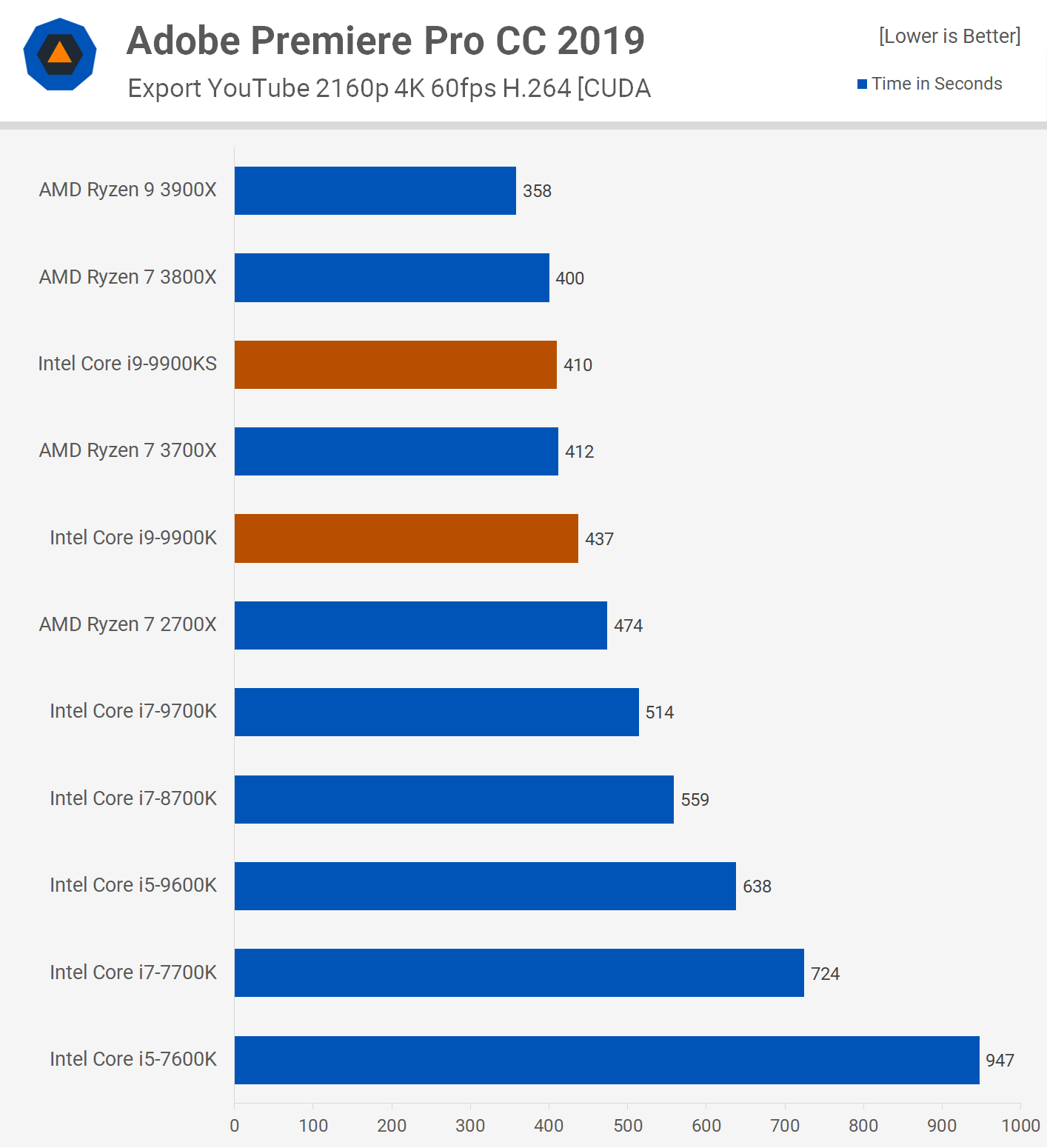
Testing with the V-Ray benchmark shows a 5% improvement for the 9900KS, though it's still 23% slower than the 3900X.
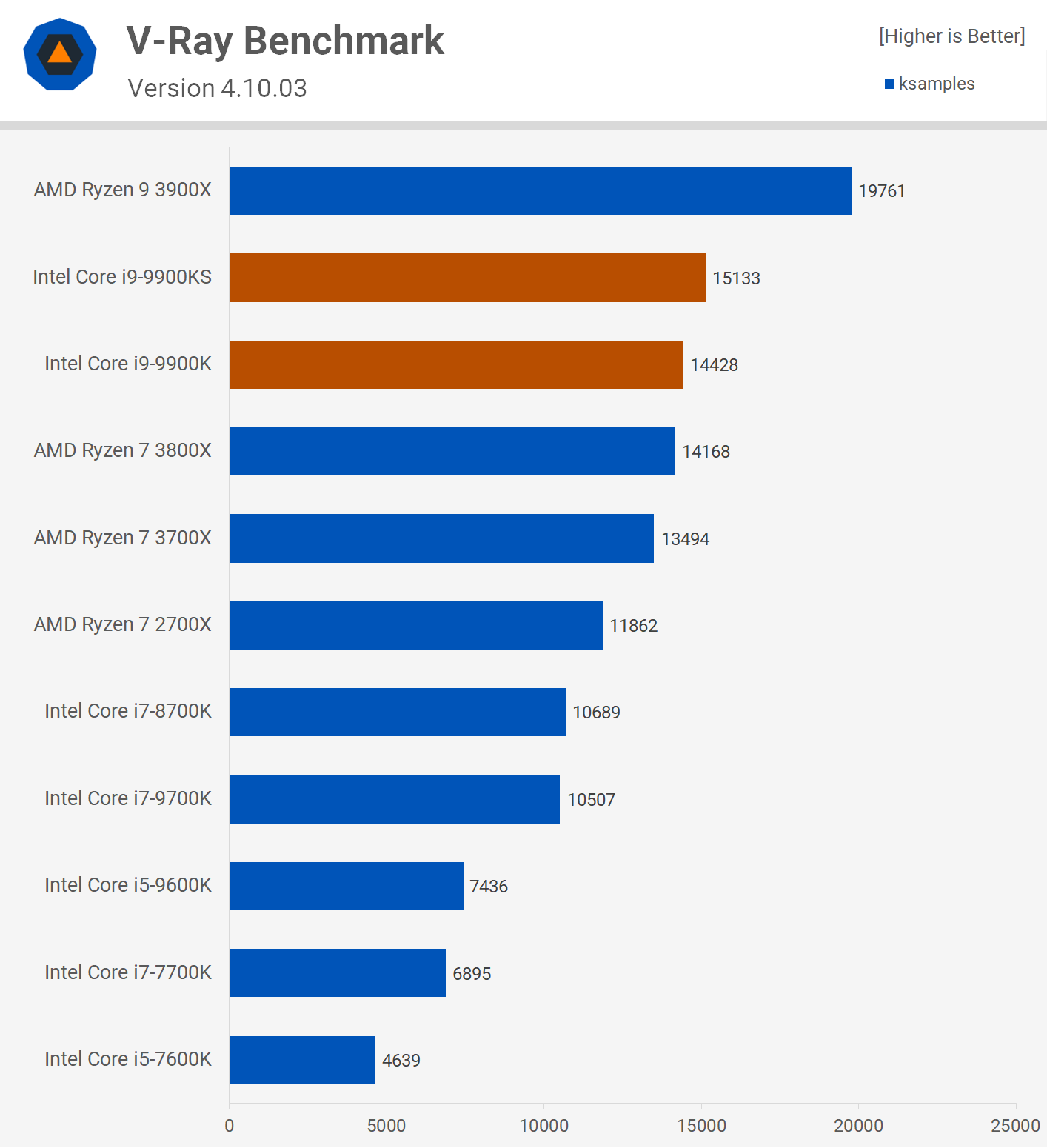
The Corona render time was reduced by 4% down to 92 seconds. The 9900KS still took 20% longer to complete the workload when compared to AMD's Ryzen 9 3900X.

Here we see the 9900KS offering a 7% reduction in render time when compared to the standard 9900K, or 30% longer than the 3900X. If your workload can take advantage of more than 8 cores, the Ryzen 9 processor will be the better choice nearly every time.
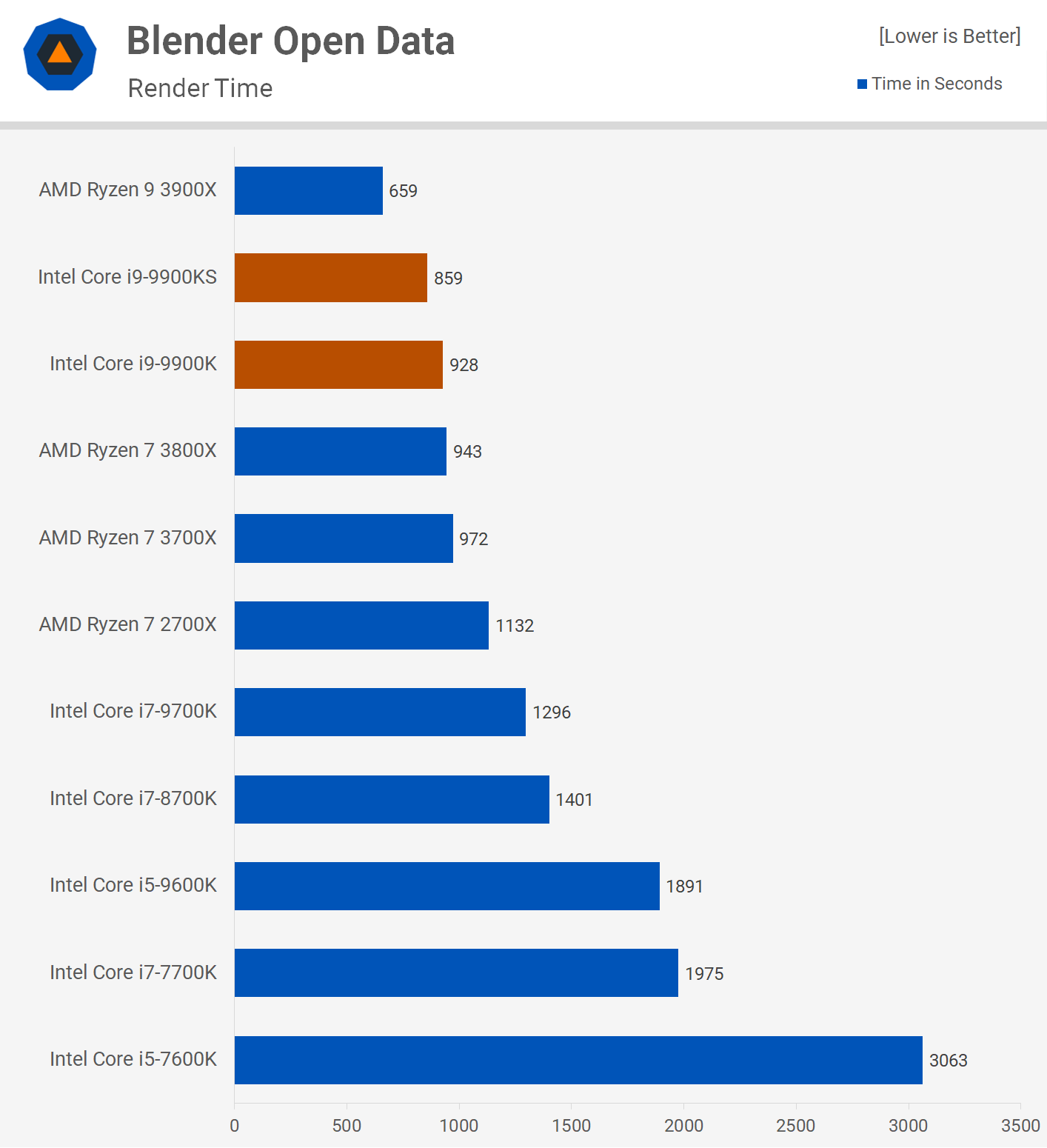
Power Consumption
Despite taking 30% longer than the 3900X to complete the Blender test, the 9900KS pushed total system consumption 26% higher, that's crazy. Fully unleashed without TDP restrictions the 9900K was already a power hungry processor, but the 9900KS sucks down even more power for a minor performance gain. Needless to say, efficiency isn't great here.

Gaming Benchmarks
Moving onto a few games, testing with the GeForce RTX 2080 Ti...
First up we have Assassin's Creed Odyssey, previously the 9900K was the fastest tested CPU in this title, beating the 3900X by a slim 4% margin. The 9900KS advances the Core i9's position by a few extra frames.

We see something similar in Battlefield V, though it's just a 2% boost. As expected the 9900KS is the fastest CPU in this title, but how well you'll notice the difference between 155 fps and 171 fps, we'll leave that up to you to decide.
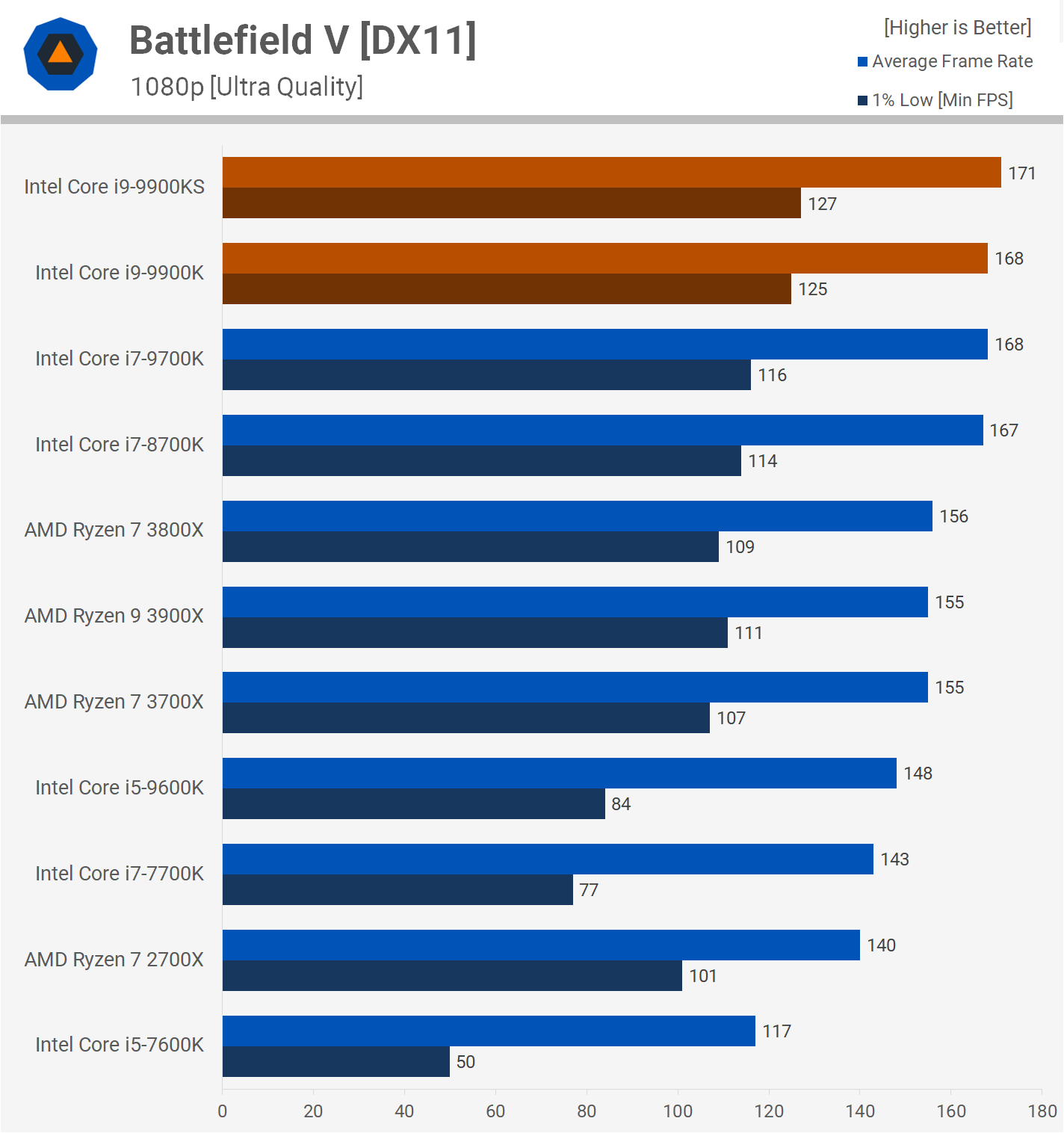
The Division 2 sees a 3% performance uplift, meaning the 9900KS was on par with the 9700K which does a little better than the standard 9900K due to its lack of Hyper-Threading, which can be a burden in this title depending on core count.
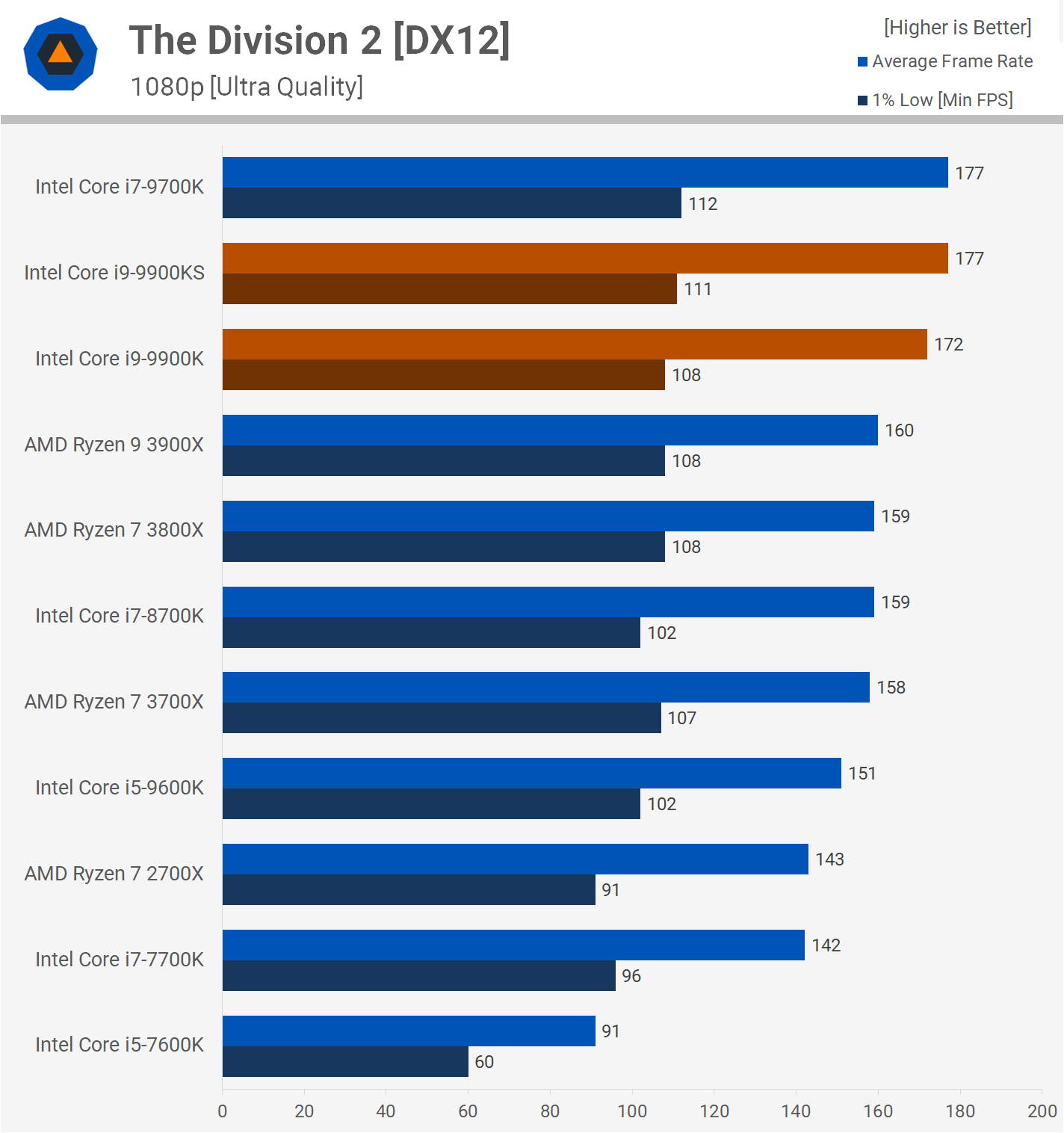
Lastly, we have Shadow of the Tomb Raider where the gain is limited to a single extra frame on average and two on the 1% low results.

Overclocking and Who Is It For?
Just like the Core i9-9900K, the 9900KS seems to struggle with 5.2 GHz. With a bit more tweaking it might be possible to get it stable in heavy workloads but we're almost certain 5.3 GHz is out of the question.
Gigabyte recently provided us with their insane Z390 Aorus Xtreme Waterforce motherboard package that comes with a hand-picked 9900K. That chip was also limited to 5.2 GHz and ran considerably cooler at 5.1 GHz thanks to a massive reduction in voltage.
Our Core i9-9900KS ran all cores at 5.1 GHz by default on the Aorus Ultra and temperatures using an AIO were reasonable. Paying the small price difference for the 9900KS if you're after a high performance version of the 9900K, isn't terrible though the 1-year warranty kind of sucks.
If you were already in the market for a Core i9-9900K processor and you were keen to overclock it, then the 9900KS makes sense.
We believe the main reason Intel released the 9900KS was generate some buzz around their processors. Right now only their high-end models such as the 9900K make sense to buy over AMD's alternatives. Without question 2nd and 3rd-gen Ryzen parts slayed the Core i5 and i3 range.
Parts such as the Core i7-8700K, 9700K and Core i9-9900K as well as all the various K revisions such as the KF and now KS, they're all suitable for extreme high-end gaming rigs, the kind of systems rocking an RTX 2080 Super or better. For those with a more modest graphics card and a desire to do things outside of gaming, AMD's 3rd-gen Ryzen is the better choice. The 3900X is the ultimate all-rounder if you can afford to spend a little over $500 on a CPU, gaming or not, it performs very well. While the Ryzen 3600 is our favorite value CPU of choice.
Bottom line, we think for most of you Intel's Core i9-9900KS is a non-event since it's hardly any different from the 9900K. That shorter warranty does leave us scratching our heads though.
